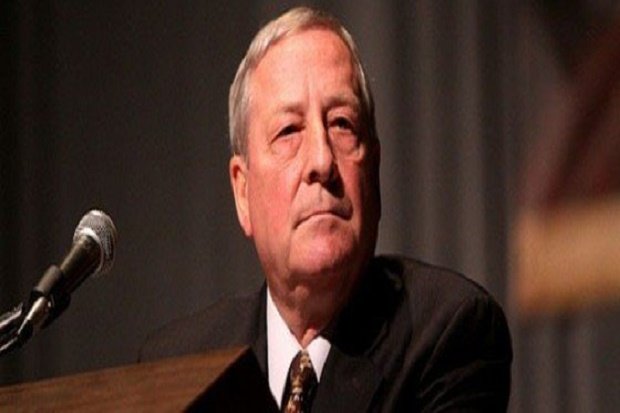Weeks before the Astana talks on the Syrian situation aimed at achieving a political solution to the six-year conflict in the Arab country that will convene today in the Kazakh capital, officials in Iran, Russia and Turkey had been busy holding last minute talks either in face-to-face meetings or by phone.
The United Nations also confirmed attendance in the talks, led by diplomat Ramzy Ramzy and accompanied by Chief of the Mediation Support Unit Robert Dann.
The Astana meeting gains special magnitude in the wake of recent developments in Syria, most notably the liberation of Aleppo by the Syrian Army back in December, and the inclusion of Turkey, this time as the guarantor of the ceasefire, and not as an advocate of toppling President Bashar Assad – an option that Turkish President Erdogan had been pursuing vehemently as his Syria policy.
Meanwhile, the incoming Trump administration had, reportedly, received an invitation to the talks by Russia, although Iranian Foreign Minister Mohammad Javad Zarif has voiced his objection to the inclusion of the US in the course of negotiations. Trump’s presidential campaigns on regional policies marked a stark contrast to the Obama administration policy which sought regime change in Syria as the only way to settle the conflict. It remains to be seen, however, if incoming President Trump will keep his presidential vows in regard to Middle Eastern affairs.
In an exclusive interview with Mehr News Agency, former CIA counter-terrorism specialist and military intelligence officer Philip Giraldi expressed optimism over the outcome of the Astana talks, adding “it is clear that the Syrian government and its allies have the upper hand militarily and it will now be necessary to confirm that the government will not be replaced in the near term while also drawing up zones of responsibility for the parties in the conflict as part of a cease fire and disarmament agreement.”
“Once the government and opposition are operating in and confined to their established zones it will be possible to discuss issues like amnesty and political reconciliation, both of which will have to take place,” he added.
Giraldi assessed the role and impact of each participating side on the process of the negotiations, adding “the shift by Turkey in no longer demanding the ouster of al-Assad has been critical as it has severely limited direct support of the insurgents, but the role of Iran, Turkey and Russia as guarantors of the process is absolutely essential.”
He went on to add, “it has always been clear that Syria will need a local solution and Turkey and Iran presenting a unified front alongside the Syrian government makes a successful outcome much more likely.”
Giraldi found it likely that the US represented by incoming president Donald Trump would participate in the Astana talks. He maintained that in this case, the presence of Trump administration in the meeting will signal that “Trump will be abandoning the Obama policy of ouster for al-Assad and will seek to stabilize the situation, which Iran and Russia have been working to do for the past two years.”
“I do not believe that Trump and his advisers wish to continue the current policy and will be eager to support an option that will permit US to focus on destroying ISIL and withdrawing from the region,” he further stressed. “Trump will not support the Obama policy and has no interest in removing al-Assad.”
“I do not expect Saudi Arabia and the Persian Gulf States to participate even if they were to be invited and will not willingly cooperate with what is decided,” he added.
“Syria will be for the foreseeable future a state in reconstruction, much like neighboring Iraq has been,” Giraldi predicted for Syria in the wake of a positive outcome of the Astana talks. “It will need considerable outside resources, which, in normal circumstances could be coming from the Saudis and Gulf States, so the question becomes to what extent will those governments go along with a solution for Syria that leaves the government in place and gives to Iran a major role in the settlement process.”
“I suspect there will be serious problems and also Israel will be seeking to disrupt any settlement that leaves Syria intact as its desire is to see Syria broken up into tribal and ethnic groupings much as has happened in Iraq,” he said, but went on to dismiss the notion that the US under the presidency of Donald Trump would back these disintegrating policies.
“I do not think the United States will give in to the demands of the Saudis or Israelis, however, as I believe that Trump will be seeking to finish the fighting and disengage rather than continue the armed conflict,” he said.
The Astana talks are slated for January 23 and 24 in the Kazakh capital city where representatives of the Syrian government and the opposition groups that have not been blacklisted in the UN as terrorists will sit down at the negotiating table to arrive at a political solution and sustainable peace and stability in the country. Iran, Russia and Turkey as well as a delegate from the United Nations will observe the meeting. Latest developments note that the Trump administration have not sent a delegation to Astana talks due to “immediate demands of the transition,” but the US ambassador to Kazakhstan will attend as an observer.
The Astana meeting will also prepare for Geneva talks resumption on February 8.
Philip Giraldi is a former CIA counter-terrorism specialist and military intelligence officer who served eighteen years overseas in Turkey, Italy, Germany, and Spain. He is a recognized authority on international security and counterterrorism issues. Giraldi is currently President of San Marco International, a consulting firm that specializes in international security management and risk assessment.
Interview by: Marjohn Sheikhi

























Your Comment